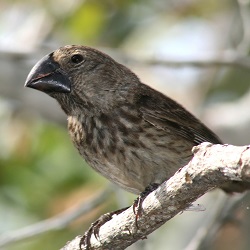Students receive zoonosis training
An increased number of viruses and bacteria have crossed the species barrier to humans and caused human pandemics with high morbidity and mortality. The current inability to predict the emergence of these pathogens makes it difficult to take preventive measures. The EU-funded ANTIGONE (Anticipating the global onset of novel epidemics) initiative set out to determine how zoonotic diseases cross the species barrier and continue to spread among humans. The team took a two-pronged approach covering research and training. First, the researchers studied viruses and bacteria to better understand how zoonotic pathogens can cause pandemics in humans. They focused on pathogens such as SARS coronavirus, Crimean-Congo haemorrhagic fever virus and Ebola virus. ANTIGONE trained young scientists in the One Health concept, which blends together many disciplines scientists will need to better fight zoonotic pathogens. The team organised experts from human and veterinary fields to discuss key issues in infectivity, pathogenicity and transmissibility of these pathogens. Project members studied the MERS-CoV pathogen, found its receptor and showed the central role of dromedaries in human exposure to MERS-CoV. They developed a new antibody-based method to study the role of herd immunity on antigenic variation among pathogen strains. The researchers showed that some isolates of the HPAIV H5N1 pathogen are only a few mutations away from becoming easily transmissible among mammals. ANTIGONE studied the relationship between climate change and tick-borne diseases and found that host abundance and social factors may explain the upsurge of epidemics. ANTIGONE developed a framework to assess the risk of the introduction of bat-borne zoonotic pathogens in Europe. Researchers studied the Escherichia coli O104:H4 outbreak and developed real-time multiplex PCR-based detection assays that could be used as a disease surveillance tool. These results will help predict the zoonotic and pandemic potential of pathogens, and improve early detection and effective response against outbreaks of emerging zoonotic pathogens. ANTIGONE’s combined training in human medicine, veterinary medicine and One Health concepts has prepared a new generation of scientists for tomorrow’s global health problems.







